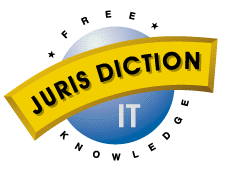 Assignment of Licensed
Rights or Obligations
Assignment of Licensed
Rights or Obligations
copyright 1997 Donald M. Cameron , Aird & Berlis
Assignment of Licensed Rights or Obligations
Unless the licence agreement has stated that the licence is "personal" or there is a clause in the agreement limiting either party's right to assign rights and obligations under the licence, under Canadian law, a party to an agreement is free to assign its rights under the Agreement, but cannot assign its obligations without the approval of the other party.
The contrary is true in the United States, where neither party is entitled to assign its rights or obligations under the contract without the approval of the other. A patent licence is considered to be "personal" and cannot be assigned without the permission of the Licensor.
A Licensor may be pleased to licence its software to a small enterprise. If, however, the assets of the Licensee are subsequently sold to a competitor of the Licensor, the Licensor may not want its software to be available to the competitor. The Licensor can control the "re-sale" of the Licensee's rights to a third party by having the Agreement limit the assignability of the licence.
Licensors should be equally concerned with a change in the corporate control of the Licensee which might have a result similar to that of an assignment of the licence. If the shares of the Licensee are sold to a competitor, the competitor will have indirect access to the computer program. If this scenario is not desired, then a "change in control" clause should be added to the Licence Agreement.
To the benefit of the Licensor:
The Licensee shall not assign any of its rights or obligations under this Agreement without the prior written consent of the Licensor which (may/may not) be unreasonably withheld.
Similarly, a Licensee may not want the Licensor to assign the intellectual property rights to the computer program because it may end up in the hands of an unfriendly new Licensor. The Licensee may want to have the first right of refusal to purchase the intellectual property rights if the Licensor eventually find a purchaser.
To the benefit of the Licensee:
The Licensor shall not assign its rights or obligations under this Agreement or any of the Intellectual Property Rights licensed under this Agreement without the prior written notification to the Licensee.
Or:
The Licensor grants to the Licensee the right of first refusal for the Intellectual Property, that is, in the event that the Licensor obtains an offer to purchase the Intellectual Property from an arm's-length purchaser, the Licensor shall offer the Intellectual Property for sale to the Licensee for the amount offerd by the potential arm's-length purchaser. If the Licensee wishes to exercise this option and purchase the Intellectual Property, it shall communicate its acceptance to the Licensor within two weeks of receiving the offer from the Licensor.
Return to:
Cameron's IT Law: Home Page; Index
Cameron's Canadian Patent & Trade Secrets Law: Home Page; Index